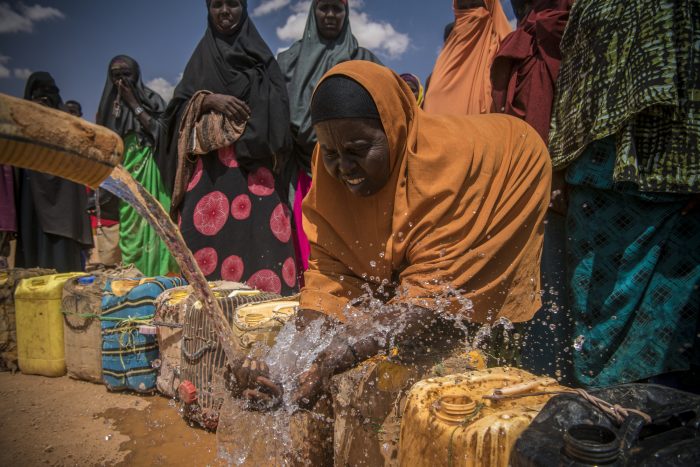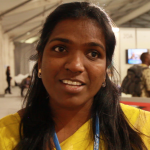
 As I sit in CASA’s (Church’s Auxiliary for Social Action) Mumbai office to write this blog, nearly 50,000 farmers -women, men and some of their daughters as young as 1 year old have assembled in Mumbai, marching 180km in scorching heat to demand that the government pay heed to the escalating disastrous situation in rural India due to the agrarian crisis there. The 62nd Commission on Status of Women, which continues in New York this week, with its priority theme as “Challenges and Opportunities in achieving gender equality and empowerment of rural women and girls” is very apt and echoes similar sentiments to the farmers marching on Mumbai.
As I sit in CASA’s (Church’s Auxiliary for Social Action) Mumbai office to write this blog, nearly 50,000 farmers -women, men and some of their daughters as young as 1 year old have assembled in Mumbai, marching 180km in scorching heat to demand that the government pay heed to the escalating disastrous situation in rural India due to the agrarian crisis there. The 62nd Commission on Status of Women, which continues in New York this week, with its priority theme as “Challenges and Opportunities in achieving gender equality and empowerment of rural women and girls” is very apt and echoes similar sentiments to the farmers marching on Mumbai.
Let me also bring to you the report UN published on International Women’s Day (March 8 2018) highlighting the vulnerability of women, and how climate change impacts women more than men. 80% of people displaced by climate are women. As primary care givers and providers of food they have to collect fuel and water, even during droughts and floods, which makes them more vulnerable and having to work harder.
The ACT Alliance works at the grassroots with vulnerable groups affected by disasters, involved in sustainable development, and in advocacy. ACT members are currently participating in the 62nd CSW, working to help increase the opportunities to convert the challenges of girls, women, and LGBTQ people to lead and take control in their own lives.
At COP23, the international climate conference held In 2017 in Bonn, the Gender Action Plan was approved, acknowledging that women are disproportionately affected by climate change. The plan highlights the need for capacity building, participation in decision making and leadership positions in climate meetings, along with many other provisions.
The needs of women and girls in humanitarian situations are enormous. Lake Chad in central Africa has lost 90% of its water, leaving nomadic indigenous groups at risk. In Haiti, women who were displaced by flooding’s sanitary requirements received little attention. More women get killed in catastrophic situations than men for many reasons including their attire—women wearing saree during the 2004 tsunami were slowed down by their clothes. Women with more socio-economic power are less affected by such situations. For the best gender sensitive responses we need more women in the negotiating bodies of humanitarian organizations.
Let’s provide opportunity and make the rural women lead their life as well as the world to a green, just and peaceful existence.
Last word: Can you imagine the thoughtfulness of the farmers as they walked their last leg of the March into Mumbai in the middle of the night so they didn’t inconvenience the Mumbai school children who were taking their final Board exam on 12th March.
How thoughtful are we to other’s needs? This is a first step in making a green just and peaceful world.
_______________
 Dr Joycia Thorat, Co-chair of Advisory Group on Advocacy, ACT Alliance and Project Officer & policy desk in charge, Church’s Auxiliary for Social Action (CASA), India
Dr Joycia Thorat, Co-chair of Advisory Group on Advocacy, ACT Alliance and Project Officer & policy desk in charge, Church’s Auxiliary for Social Action (CASA), India
